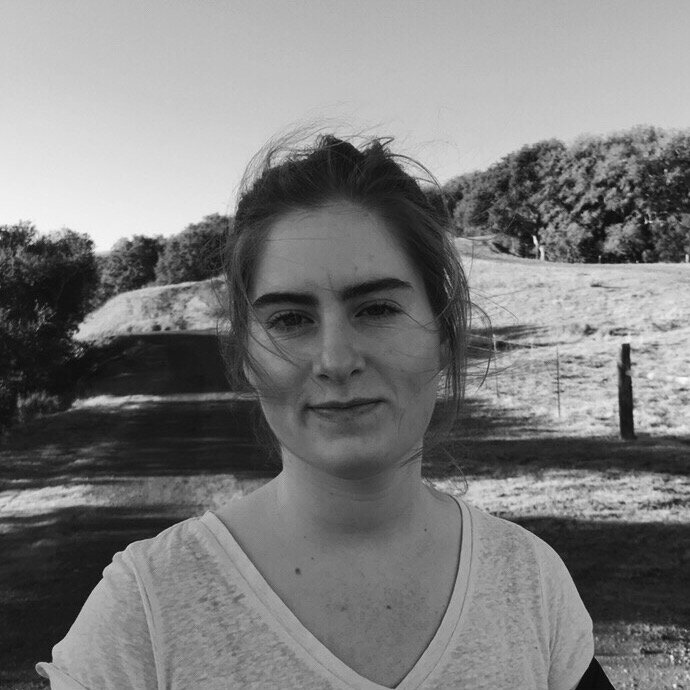Anniversary Dinner
Untitled (2006) by Anh Duong
By Carina Cain
“Monsieur, you must know that we cannot make any amendments to our main dishes.”
“Yes, but this is not an amendment. And it’s technically not even part of the main dish. It’s on the side. Honestly, it’s just a small request. Surely that’s not too extreme an ask.”
Martha could bury her head in a pot of boiling water and her face would still not be as hot as it is now, here, sitting inside Les Philosophes, in Paris, on her wedding anniversary, next to a man she took to be her husband thirty years ago on a much different day in September, who is arguing with a poor waiter about the impossibility of spice substitutions on a side of roast potatoes.
“Monsieur, the potatoes are part of the main dish, they just happen to be on the side of the plate, and not the middle, yes?”
“No, not yes. Not yes.”
Tom was stoically English. He did not want cayenne pepper on his roast potatoes, which he had spat out, not indelicately, into a cloth napkin, one bite into their meal. Salt, garlic, perhaps even some kind of nondescript green herb was fine, but Martha’s husband drew the line at spice. He exulted in consuming foods that a neutral, non-English party might describe as bland. He loved plain toast, tomato soup, medium-rare steak, beans, and Yorkshire tea. Once, she had attempted to persuade him to try some chicken tikka masala, which she herself thought was a divine bit of culinary work, with disastrous results. They hadn’t spoken for a day after, a day spent with him giving her furtive glances full of something she could confidently identify as contempt. Looking at him now, watching a vein throb precariously along the length of his neck, Martha thinks, really, he himself is quite bland—as a lover, a companion, a person. How very sad, Martha thinks, around the sound of her embarrassment, which bleats louder than the braised lamb shank currently resting next to her husband’s potatoes probably did, in the minutes right before it became a shank, later braised, while it was still just a lamb. Probably, she would have preferred the company of the animal to Tom and his sad, bland palate. How very sad for Tom, Martha thinks, to be himself, and how very tragic for me, to be stuck with him.
“Monsieur, I am sorry, but the recipe cannot be changed. If you would like, I can remove the potatoes and bring more bread.”
“More bread,” Tom repeats slowly.
“Yes, or a small salad if you prefer.”
“Small salad? You mean a side salad?” When he says the word “side,” another vein pops out on his temple. Martha wonders what would happen if she took one of the sewing needles she keeps in the side pocket of her Victoria Beckham purse, in her travel-size sewing kit, and pressed it ever so gently against the raised, blueish skin to release some of the pressure. Probably, he would bleed. And bleat, like the lamb. Her face is cooling down.
“More bread would be lovely,” she tells the waiter, who immediately looks less annoyed and, dare she say, slightly relieved.
“Of course,” the waiter says, preparing to move around their table.
“Merci,” she adds, just to make sure the waiter understands that she Is Ashamed Of Her Husband’s Appalling Behavior.
The waiter smiles slightly at her and scurries off, so now she must look at Tom, who is already looking at her. She feels ill and quite superior to him in every way. She is more beautiful for their age, and better with languages, and kinder to waiters, and so adventurous, foodwise.
“You didn’t have to do that,” he says.
“You would have chosen the bread,” she says.
“That’s not the point.”
Now he isn’t looking at her. He’s looking at a young couple seated three tables away from them, who are leaning forward slightly and smiling at each other, like they just can’t help it. Martha looks, too, and hates them. She wonders if she and Tom were ever looked at by strangers celebrating their anniversary dinner at a restaurant thirty or twenty-five or even fifteen—he was still somewhat tolerable in the mid-2000s—years ago and hated for how in love they looked. Probably, she thinks, and it makes her feel a bit better about the whole situation. She wishes she could sidle up to the young couple’s table and alert them to the fact that one day, maybe in a year or fifteen or thirty, they could very well hate each other just as much as they ever loved each other, and spare them a tremendous amount of embarrassment and contempt in the future.
She doesn’t sidle, she turns back to Tom and says, “Well, the lamb really is quite nice. And the bread will be warm.”
Tom gives the young couple one last glance, huffs, and turns back his plate. He stares, huffs again, tries the lamb, chews vigorously, but the vein in his temple isn’t protruding so much anymore. He swallows, looks at her, and says, “Yes, alright. You’re right.”
Martha placates him with a smile. Of course she’s right.
Tom moves to take another bite, but before he does, looks at her closely and says, “You do look lovely tonight, darling.”
Martha looks back at him and her face burns again, not all over, but in her cheeks and right below her eyes, and she is a little glad for the ability to think things and not say them out loud. To their right, the young couple starts laughing.
“Thank you, darling,” she says. “Happy anniversary.”
Carina Cain is a Bay Area local who graduated from Lewis & Clark College with a B.A. in English. She is admittedly too fond of the hyphen, and wholeheartedly believes that arts education is fundamental to the well-being of society.



